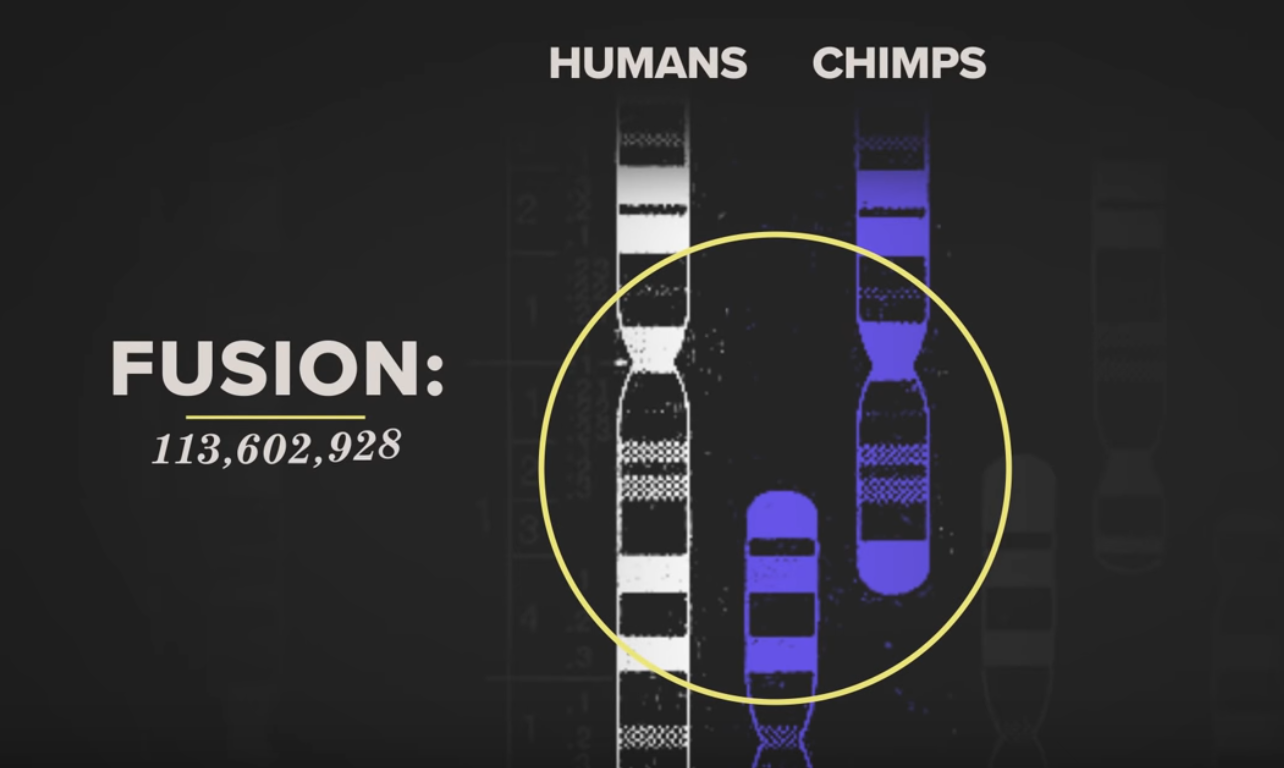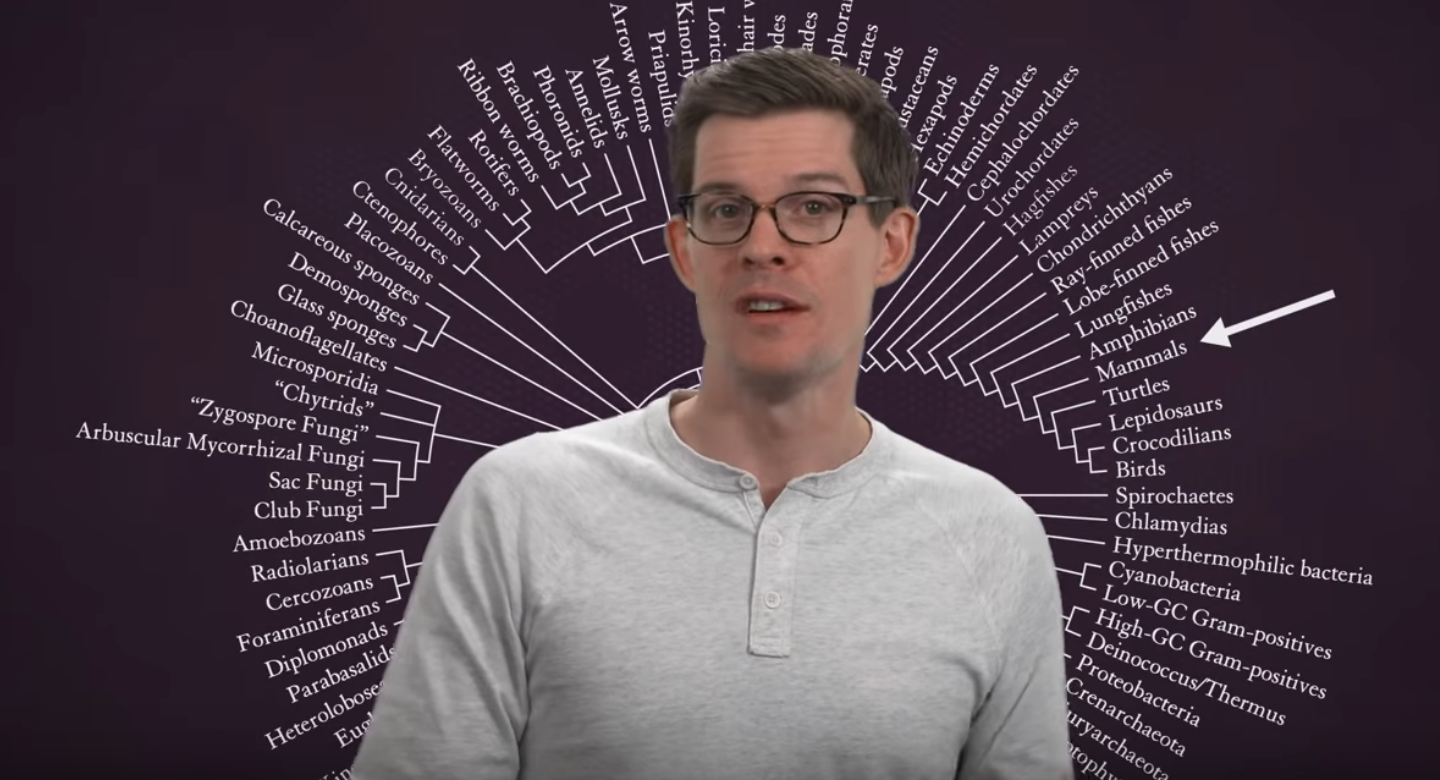Another great video from our friend Dr. Joe Hanson and the team behind the video series It’s Okay to Be Smart, brought to you by PBS Digital Studios. This time, we’re looking at the proof of evolution that’s embedded right there in our DNA.
According to Dr. Hanson, “Humans are special, and we got that way thanks to evolution and natural selection. The proof is right there in our bodies! From anatomy to genes, here are some stories of how you got to be the way you are.”

Evolution of Squirrels
Black squirrels — a relic of ancient, old-growth forests — are now more common in cities. To understand why, scientists want to track the color of squirrels in your backyard.
COULD EVOLUTION BE CHANGING YOUR NEIGHBORHOOD SQUIRRELS?
Plants in an Evolutionary Arms Race
The relationship between a parasite and its host can be a contentious one. Their interests are in direct conflict with one another, so each is always trying to circumvent the other’s plan. This is often thought of as an evolutionary “arms race.”
PARASITIC PLANT HAS EDGE IN EVOLUTIONARY ARMS RACE
Evolution Meets Conservation
To conserve plant habitats, a traditional approach to biodiversity—species richness, or saving as many species as possible—might not be the most effective route. Instead, vulnerable landscapes might be better served by a quality-over-quantity mindset, a recent paper from a team of UC Berkeley scientists suggests.
AN EVOLUTIONARY APPROACH TO CONSERVING PLANT HABITATS
Cooking, Evolution, and Your Brain
Cooking establishes the difference between animals and people. In fact, we’re not the only social animals that sit down to eat together, but we are the only ones who cook. But how is cooking linked to human brain’s growth and evolution?
COOKING, EVOLUTION, AND BRAIN GROWTH
Studying Evolution in DNA
In a study analyzing the genomes of 210,000 people in the United States and Britain, researchers found that the genetic variants linked to Alzheimer’s disease and heavy smoking are less frequent in people with longer lifespans, suggesting that natural selection may be weeding out these unfavorable variants in both populations.
ONGOING HUMAN EVOLUTION REVEALED IN DATA
References
Booth, H. A. F., & Holland, P. W. (2004). Eleven daughters of NANOG. Genomics, 84(2), 229-238.
Brawand, D., Wahli, W., & Kaessmann, H. (2008). Loss of egg yolk genes in mammals and the origin of lactation and placentation. PLoS biology, 6(3), e63.
Freyer, C., & Renfree, M. B. (2009). The mammalian yolk sac placenta. Journal of Experimental Zoology Part B: Molecular and Developmental Evolution, 312(6), 545-554.
Miller, Kenneth R. “The Human Instinct: How We Evolved to Have Reason, Consciousness, and Free Will” Simon & Schuster (2018) https://amzn.to/2JD3d3c
Yunis, J. J., & Prakash, O. (1982). The origin of man: a chromosomal pictorial legacy. Science, 215(4539), 1525-1530.




